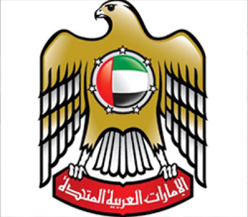Media Center
Ministry of Environment and Water issues new resolution on registration and import of pesticides
Dr. Rashid Ahmed Bin Fahad, Minister of Environment and Water, has issued Ministerial Decree No. 799 for 2015 introducing amendments to Ministerial Decree No. 236 for 2014 governing the registration and import of pesticides.
The new resolution prohibits the distribution of any pesticide without proper registration from the Ministry of Environment and Water. Furthermore, banned pesticides cannot be registered or imported into the state, while companies are barred from using pesticides without the Ministry’s approval. Upon approval, the Ministry issues a certificate of registration which is valid for five years or until the expiration of the certificate issued by the country of origin.
The resolution also forbids using similar brand names for registered pesticides or labeling the product after its active ingredient. The local label of the registered product should also match the data provided in the label issued by the country of origin. In addition, the certificate cannot be assigned and transferred to other entities.
The Ministry says it might repeal or reject an application for registration based on the following grounds, incomplete or incorrect information and documents, non-renewal of certificate of registration by the country of origin, the product’s ineffectiveness as shown by existing studies, and if found harmful to the environment, human health, animals and plants. In case of cancellation of registration or banning, the concerned company is mandated to withdraw the pesticide from the market and re-export it within 90 days after the date of issuance of the ban order or cancelation of the product registration.
The decree also requires obtaining the necessary license from relevant authorities before pesticides are imported or exported. Companies importing pesticides are mandated to secure prior permission from the Ministry even before the arrival of their products to any of the country’s ports. In addition, the registered pesticides must be sold in their original closed package without opening the containers. Local authorities have the right to reject the imported products in case of non-compliance with the set requirements and return the same to the country of origin at the expense of the importer, who will also face fines based on the assessed value of the consignment.
The resolution also states that an import permit issued to a facility is non-transferrable and that imported pesticides must be imported from the manufacturing company in the country of origin or its branches.
Government research centers as well as public and private universities approved by the state to import pesticides without registration for scientific research purposes must not exceed their limit of 20 liters (20 kilograms). The labels must also clearly show that the pesticides are for scientific research only and are not for sale.
The new resolution allows companies to import or display unregistered pesticides as part of their participation in exhibitions. They, however, should provide the summary, objectives, time and venue of the exhibition and other pertinent requirements to the Ministry before doing so. Likewise, event organisers must apply for permission to import the pesticides for exhibition purposes. They should provide the types and quantities of products to be used per participating company, and to import and display one bottle of pesticide from every type and size.
The importers are also obligated to submit a request to the Ministry before their consignments are released. The imported pesticides are released only after the chemical specifications are thoroughly examined to check if they match the information in the approved certificate of registration. Additionally, the consignments must pass the set guidelines, including a regulation stating that the period between the imported pesticides’ date of production and arrival at local ports should not exceed 180 days.
The Ministry of Environment and Water further says that it retains its right to take samples of pesticides to ensure conformity with the approved specifications and cancel or suspend the import permit. The resolution mandates all concerned establishments to amend conditions relating to the issuance of certificates accordingly within three months from the effective date.


